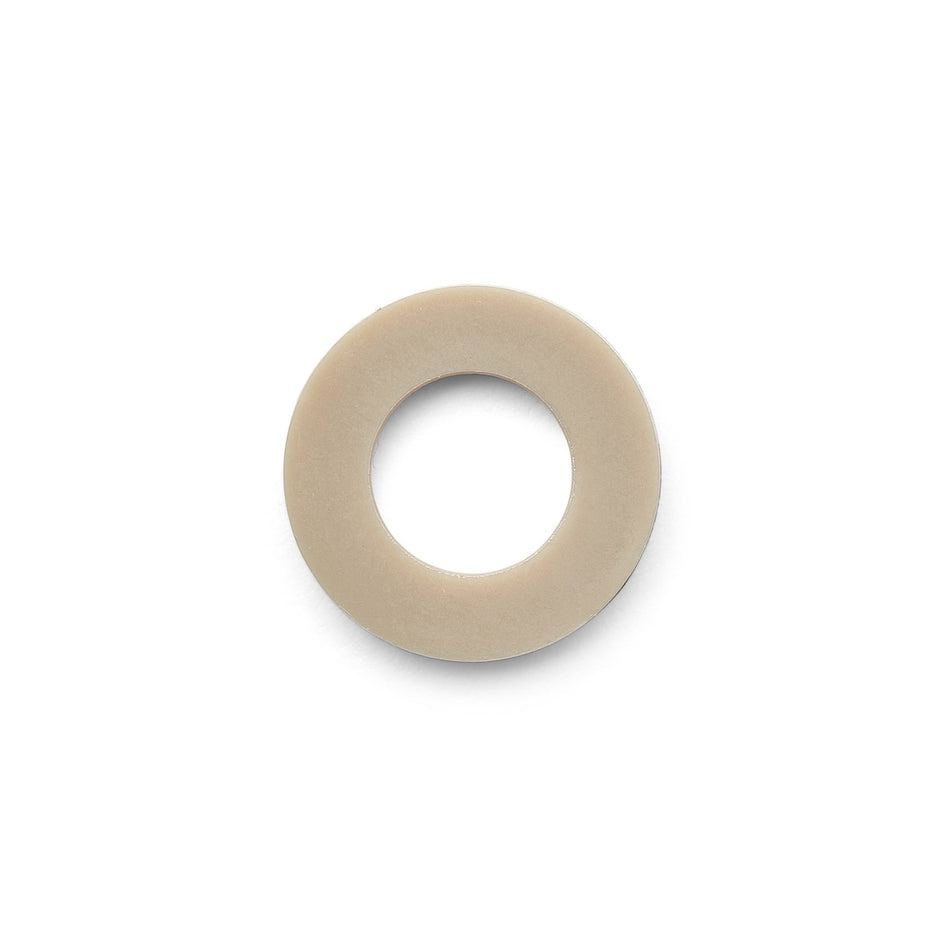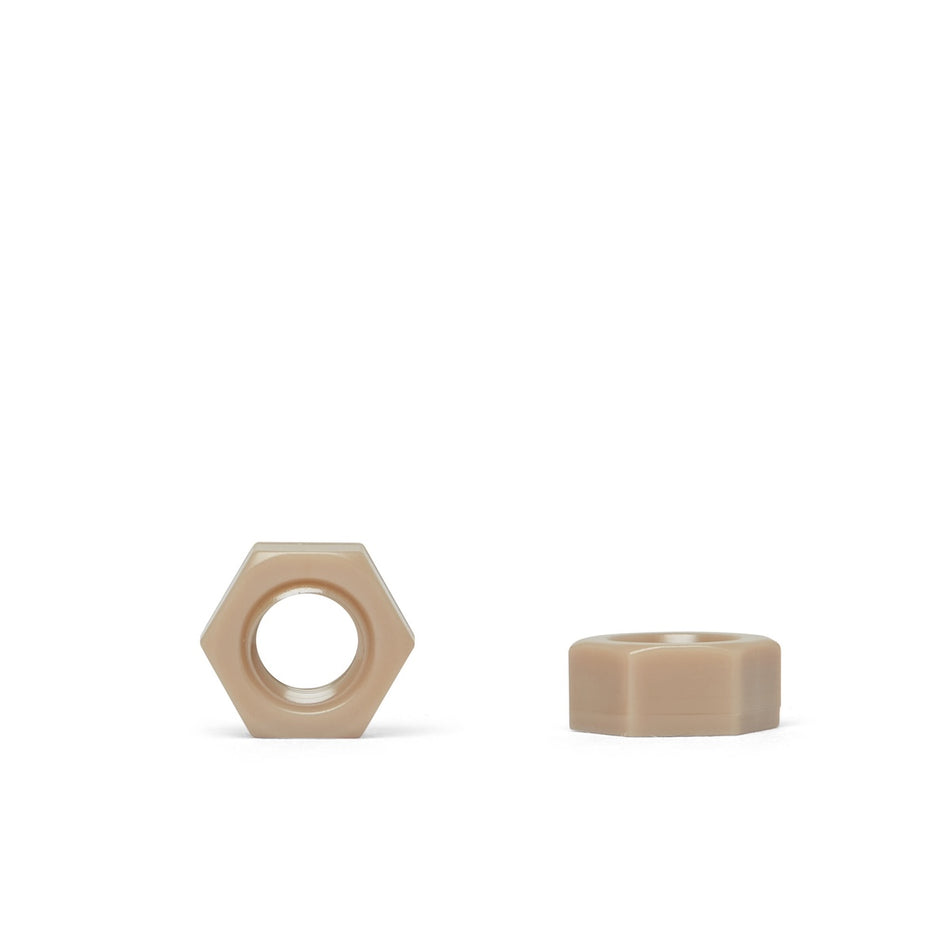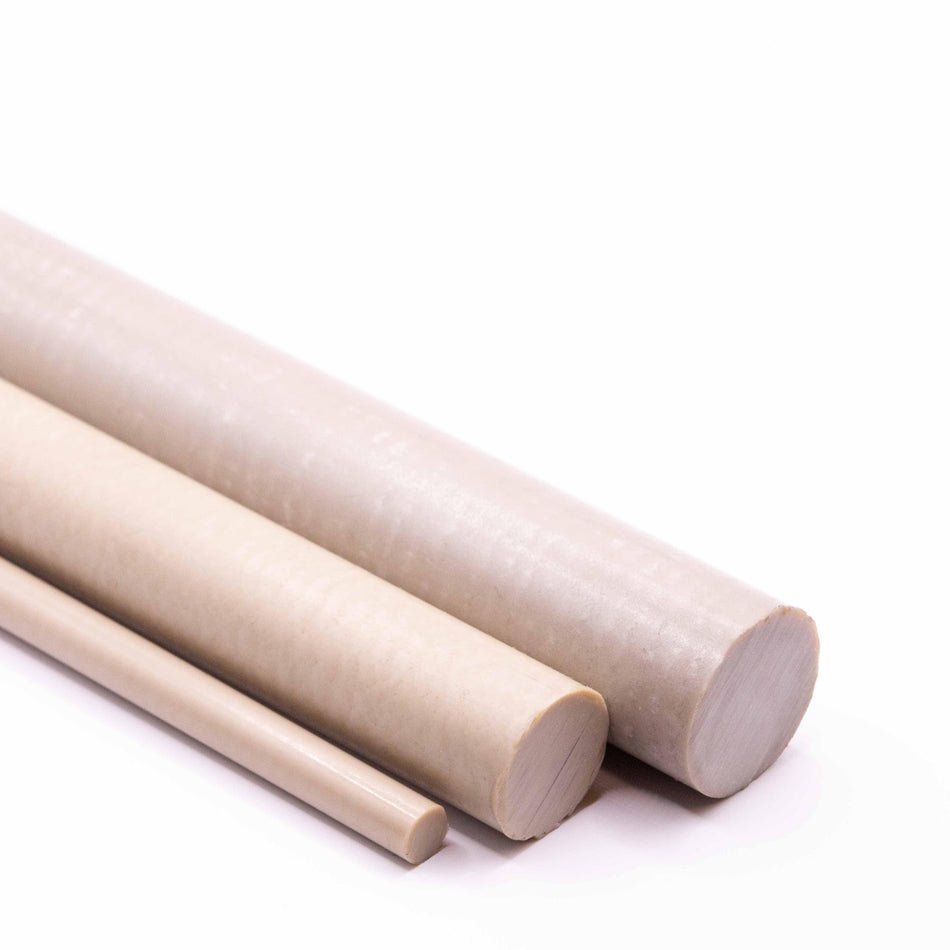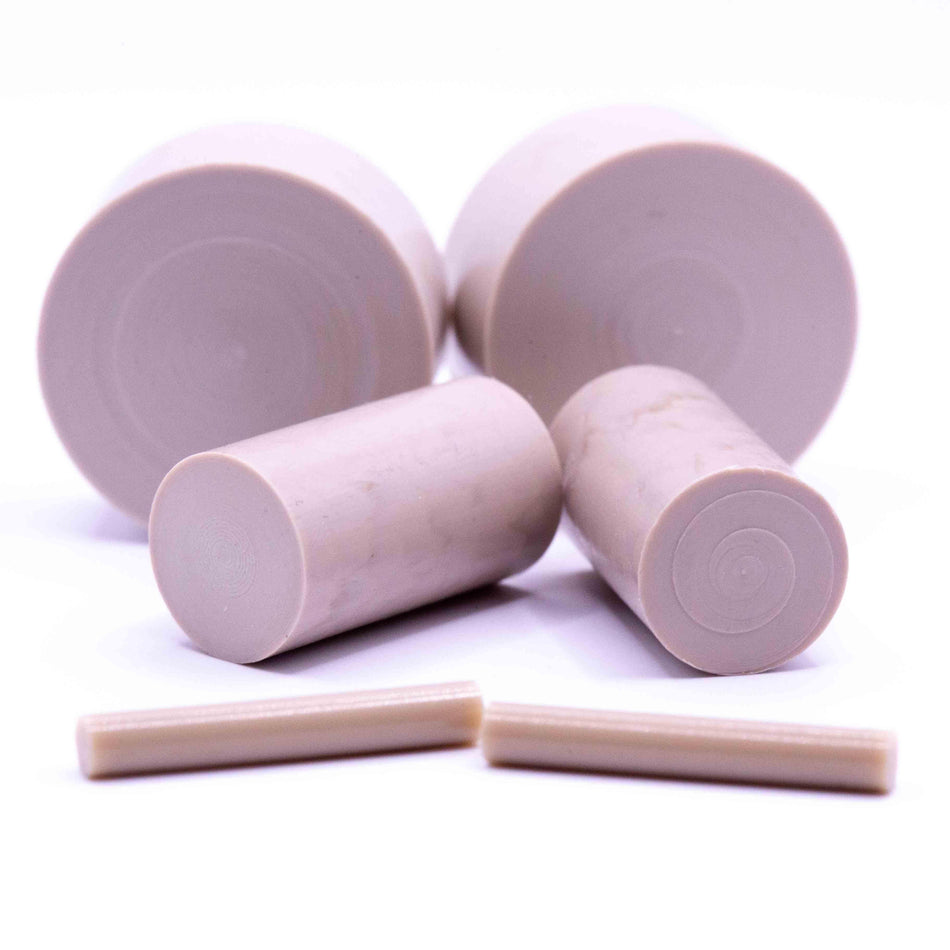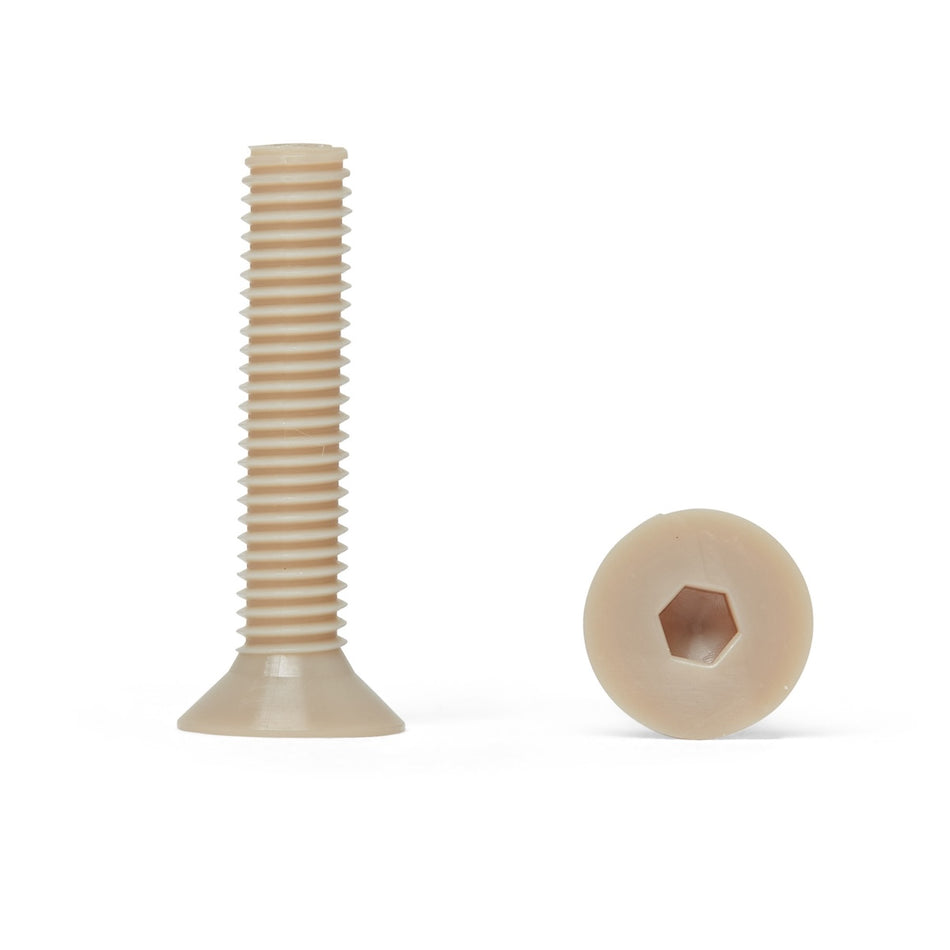72 Products
Space Industry uses of Polymer Fasteners such as Screws, Nuts, Bolts, Washers
The space industry may use polymer fasteners, such as screws, nuts, bolts, and washers, in a variety of ways, depending on the specific needs and requirements of the application. Some possible applications of these fasteners in the space industry include:
-
Assembling and securing spacecraft components: Polymer fasteners can be used to assemble and secure various components of spacecraft, such as solar panels, communication antennas, and propulsion systems. They may be preferred over metal fasteners due to their lightweight, corrosion-resistant, and non-conductive properties, which can help reduce the overall weight of the spacecraft and improve its performance.
-
Attaching and mounting sensors and other equipment: Polymer fasteners can be used to attach and mount sensors and other equipment used in space applications, such as sensors for monitoring temperature, pressure, and other environmental conditions. These fasteners may be preferred due to their insulation properties, which can help protect sensitive equipment from electrical interference.
-
Fixing and securing samples and specimens: Polymer fasteners can be used to fix and secure samples and specimens for study, such as materials for testing and evaluation, or biological samples for research. They may be preferred due to their corrosion-resistant properties, which can help prevent contamination of the samples.
-
Securing and attaching labels and tags: Polymer fasteners can be used to secure and attach labels and tags to samples and specimens in order to identify and track them.
Overall, the use of polymer fasteners in the space industry can help improve the efficiency, reliability, and performance of spacecraft by providing durable and reliable fastening solutions.
The space industry is the sector of the economy that is responsible for the exploration and use of outer space, including the design, development, production, and operation of spacecraft and related systems and services. It encompasses a wide range of activities, including the launch and operation of satellites for communication, navigation, and other purposes; the exploration and utilization of celestial bodies such as the Moon and Mars; and the provision of space-based services such as satellite imagery and meteorological data.
The space industry is a global industry, with companies and organizations located around the world. It is a highly technological and innovative sector, with a strong focus on research and development in areas such as propulsion, materials science, and avionics.
The space industry plays a vital role in the global economy, with spacecraft and satellites being used for transportation, communication, defense, and a wide range of other applications. It also has significant environmental and societal impacts, and as such, the industry is subject to various regulations and standards related to safety, emissions, and other issues.
Some examples of companies and organizations involved in the space industry include NASA, SpaceX, Blue Origin, Airbus, and Boeing.



